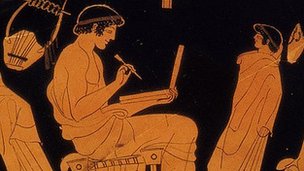I started travelling around the world nine months ago and had many questions on my mind at the time. While I got answers to some, many are still waiting to be resolved. One of the biggest ones is what makes a society succeed? For this purpose, I define success as above average living conditions and stable social and economic environment. Why did Europe colonise Africa and Latin America and not vice versa? Why did US manage to liberate themselves from the British rule already in the 18th century and went on to become a global superpower while Latin America got independence in the 19th century and Africa only in the 20th century and neither continent is particularly successful today (may be with the exception of couple countries in the southern Latin America). Why are living standards better in China than they are in India?
I am still far away from understanding these phenomena but based on what I have seen, the conversations I have had with many people around the world and what I have read, here is my first attempt to shed some light on the matter. I believe there are three broad elements which when present, make a society more successful. These are 1) working habits defined mainly by agricultural tradition, 2) nature of society’s leadership and its ability to make decisions and 3) society’s ability to define and stay true to its core values but to embrace openness and innovation in everything else.
Working habits
One my Colombian friend who studied history and economics in the US told me that you cannot understand a society until you stay with them for at least one whole agricultural cycle. Since agriculture used to be the main source of livelihood for people for thousands of years and at the same time its nature is very different across geographical locations, it should have some influence on working habits of societies. Malcom Gladwell gives an interesting example in his book Outliers: The Story of Success where he argues that East Asian people are very hard working because of their tradition of cultivating rice fields which require high labour input all year round. Compare this to for example Europe where people work on fields only half a year and the other half a year are free, or to a life in tropical areas where worst comes to worst, one can always pick up a banana or some kind of root from the ground at any time of year. I think these traditions have a significant impact on how hard people work nowadays.
The other influence comes through climate. Especially in the northern parts of Europe and US, people have only a limited window of opportunity to grow their food, often having only one harvest. This forces them to plan for that one harvest in advance and to make sure it happens. They have to build a house to survive the winter and they cannot be in war at the time of planting. It also teaches them to understand the concept of deferred consumption – they cannot eat all the potatoes in autumn because they would starve during the winter; actually, they must learn to resist the temptation of eating all their potatoes even during the times of hunger because otherwise they would not have any seeds to grow new ones from the next year. Again, compare this to a society which can grow its crops at any time of year (it does not have to plan) or can eat wildly growing plants (it does not need to get used to deferred consumption) and can sleep outside without freezing to death at night (it does not have to build sophisticated communities). Successful societies possess all these qualities and I believe that agricultural tradition has had a big influence on how well they have mastered them.
Leadership and decision making
There are three important conditions for this element to be present and impactful. Firstly, it is a tradition of centralized leadership, good or bad, giving the society a tradition of cohesion, order and some level of certainty about the future. I think that the Roman Catholic Church played a crucial role in this aspect in Europe, acting as a central institution for dissemination of knowledge and order. China has a similar thousands year old tradition of ruling dynasties with one emperor at helm. On the other hand Africa is to date fragmented into hundreds of tribes with poorly developed relationships between them and a lack of a central authority (current states trying to assume this role are failing or only moderately succeeding in most cases as we could see for example in Kenya, one of the most developed African states, during its 2007 post election violence fuelled by arguments between the Kikuyu and Lou tribes. This was still a hotly debated issue when I was visiting Kenya four years later.) The indigenous Americans and SE Asians have not had any central authority for most of their histories either.
Secondly it is an ability of society’s leaders, its central authority, to make decisions. United Stated have had for most of their history only two main political parties, the Republicans and the Democrats. The winners enjoy a majority in the Congress for at least first half of the presidential term, giving them a chance to pass important legislation. China is another good example with the Communist Party being the ultimate decision maker capable of making sweeping changes to the society. What a stark difference to for example India’s system where the wining party usually has to enter into a collation with lots of small regional or caste specific parties which are often interested only in protecting interests of its niche electoral group rather than those of the nation as a whole, leading to decision making vacuum and paralysis.
Finally, it is important how the society selects its leaders. In Africa or India, where most of the voting population is uneducated, tribe or caste play much more important role than policies. My Kenyan friend explained me that most people vote representatives of their tribe. This leads to either people with wrong policies being voted in or to inconsistencies at the top as there are no traditional (consistent) political parties. With the exception of the Congress Party and to some extend the BJP, a Hindu party, the same holds true also for India, just swap tribe with region or caste. Looking at China, we can see a big change in how it is choosing its leaders and what progress this brings to the society. At the beginning of the Communist rule, intelligent people were being persecuted and killed en mass and uneducated peasants and workers guided by Mao Zedong were put in charge of China, resulting in a disaster during which 30 million people died of famine and millions of others were killed for political reasons. After Mao’s death however, the Party started transforming itself, and under the leadership of Deng Xiaoping evolved into an elite club of some of the country’s smartest people. While still not a democracy, China has nowadays a surprisingly meritocratic way of selecting its leaders. Its recent economic success and increases in living conditions are a world away from the life under Chairman Mao.
It is crucial for a country to have a system able to eliminate narrow minded populists from gaining positions and put educated people in charge of its development. If the system than holds them accountable to development of the society, be it through educated electorate as in the case of the US, or a thread of revolt as in the case of China (see my previous post), this condition is my opinion more important to society’s development than whether its leaders are democratically elected or not.
Coexistence of tradition and progress
I borrowed this concept from Jim Collins’ recent book Great by Choice where he observes that some of the most successful companies were able to define a set of core values (or value propositions) which they did not change throughout their existence but were willing to evolve everything else around them. The same holds true in my opinion to societies well. Turning to the example of USA or China, a democracy at the core and an authoritarian communist country respectively, both are staying true to their values while are embracing innovation and openness in all other aspects. China’s leaders have correctly understood that for the society to prosper, they have to allow private enterprise and to open the country to FDI.
My Chinese friends go shopping to Wal-Mart, have furniture from IKEA at home and meet up in Starbucks. On the other hand India has traditionally been a closed country and even though its 1991 reforms by then finance minister, now PM, Mohammad Sing opened up the country a bit, it still remains hidden behind a wall of protectionism. It is frequently reported that over one third of Indian food rots before it reaches consumers yet when the government voted last year to allow FDI in multi-brand retail which would bring much needed investment into its food supply channels thus eliminating some of this wastage, it was met with fierce resistance from small merchants and dealers benefiting from the current inefficient system of small corner shops. Its coalition partners forced it to reverse this decision at the time and even though it earlier this year passed a law allowing FDI in this sector, it attached so many strings that it will be difficult for investors to enter, thus depriving its people of so much needed development and affordable fresh groceries.
These are my first thoughts on the topic of what makes societies successful. They are by no means exhaustive. I am sure there are many more reasons, which I am looking forward to exploring in the future. In the meantime, I would love to hear your opinions!




Recent Comments